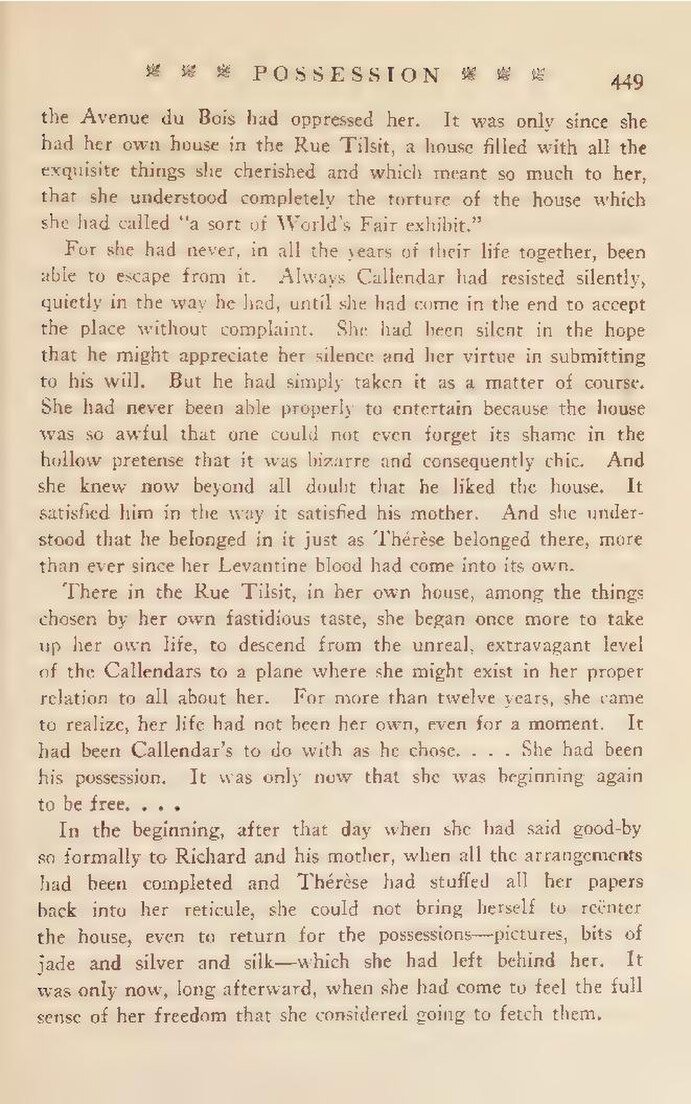the Avenue du Bois had oppressed her. It was only since she had her own house in the Rue Tilsit, a house filled with all the exquisite things she cherished and which meant so much to her, that she understood completely the torture of the house which she had called "a sort of World's Fair exhibit."
For she had never, in all the years of their life together, been able to escape from it. Always Callendar had resisted silently, quietly in the way he had, until she had come in the end to accept the place without complaint. She had been silent in the hope that he might appreciate her silence and her virtue in submitting to his will. But he had simply taken it as a matter of course. She had never been able properly to entertain because the house was so awful that one could not even forget its shame in the hollow pretense that it was bizarre and consequently chic. And she knew now beyond all doubt that he liked the house. It satisfied him in the way it satisfied his mother. And she understood that he belonged in it just as Thérèse belonged there, more than ever since her Levantine blood had come into its own.
There in the Rue Tilsit, in her own house, among the things chosen by her own fastidious taste, she began once more to take up her own life, to descend from the unreal, extravagant level of the Callendars to a plane where she might exist in her proper relation to all about her. For more than twelve years, she came to realize, her life had not been her own, even for a moment. It had been Callendar's to do with as he chose. . . . She had been his possession. It was only now that she was beginning again to be free. . . .
In the beginning, after that day when she had said good-by so formally to Richard and his mother, when all the arrangements had been completed and Thérèse had stuffed all her papers back into her reticule, she could not bring herself to reënter the house, even to return for the possessions—pictures, bits of jade and silver and silk—which she had left behind her. It was only now, long afterward, when she had come to feel the full sense of her freedom that she considered going to fetch them.
